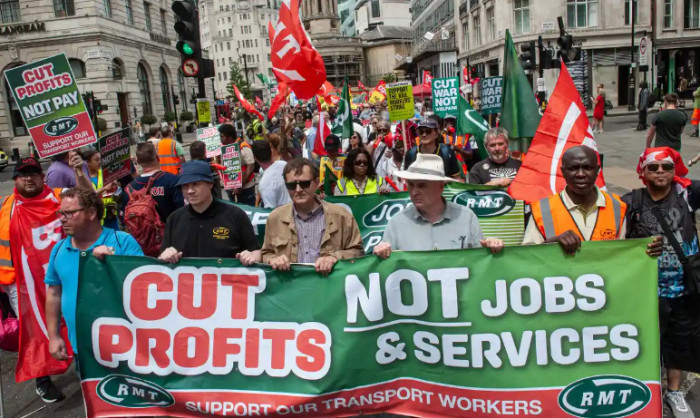
The largest railway strike in 30 years has begun in Britain
The UK has launched the largest railway strike in 30 years after talks between the government and the union to raise employees' salaries failed.
The strike involved about 40,000 members of the British Rail, Maritime and Other Transport (RMT) trade union, including employees of Network Rail, which owns and manages the country's railway infrastructure, as well as representatives of 13 railway operators and subway workers.
Further strikes are scheduled for Thursday and Saturday. Residents of the country were warned not to try to go somewhere by train unnecessarily, as many lines in the country are closed and only one-fifth of all trains are operational.
"RMT has no choice but to defend its members," said union chairman Mick Lynch.
He noted that the government did not meet RMT's demand for a 7-8% salary increase, and accused the authorities of using COVID-19 as a pretext for "transport savings", including the closure of railway ticket offices. The union leaders were not satisfied with Network Rail's proposal for a 3% salary increase.
RMT said the strike would continue until the union's demands were met.
On the first day of the strike, the duration of car trips in London doubled, the British capital became the busiest city in the country, according to the manufacturer of navigation systems TomTom.
The Prime Minister of the United Kingdom Boris Johnson said on Tuesday that the railway sector needs modernization. He called on union leaders to continue talks with Network Rail and agree on necessary reforms.




